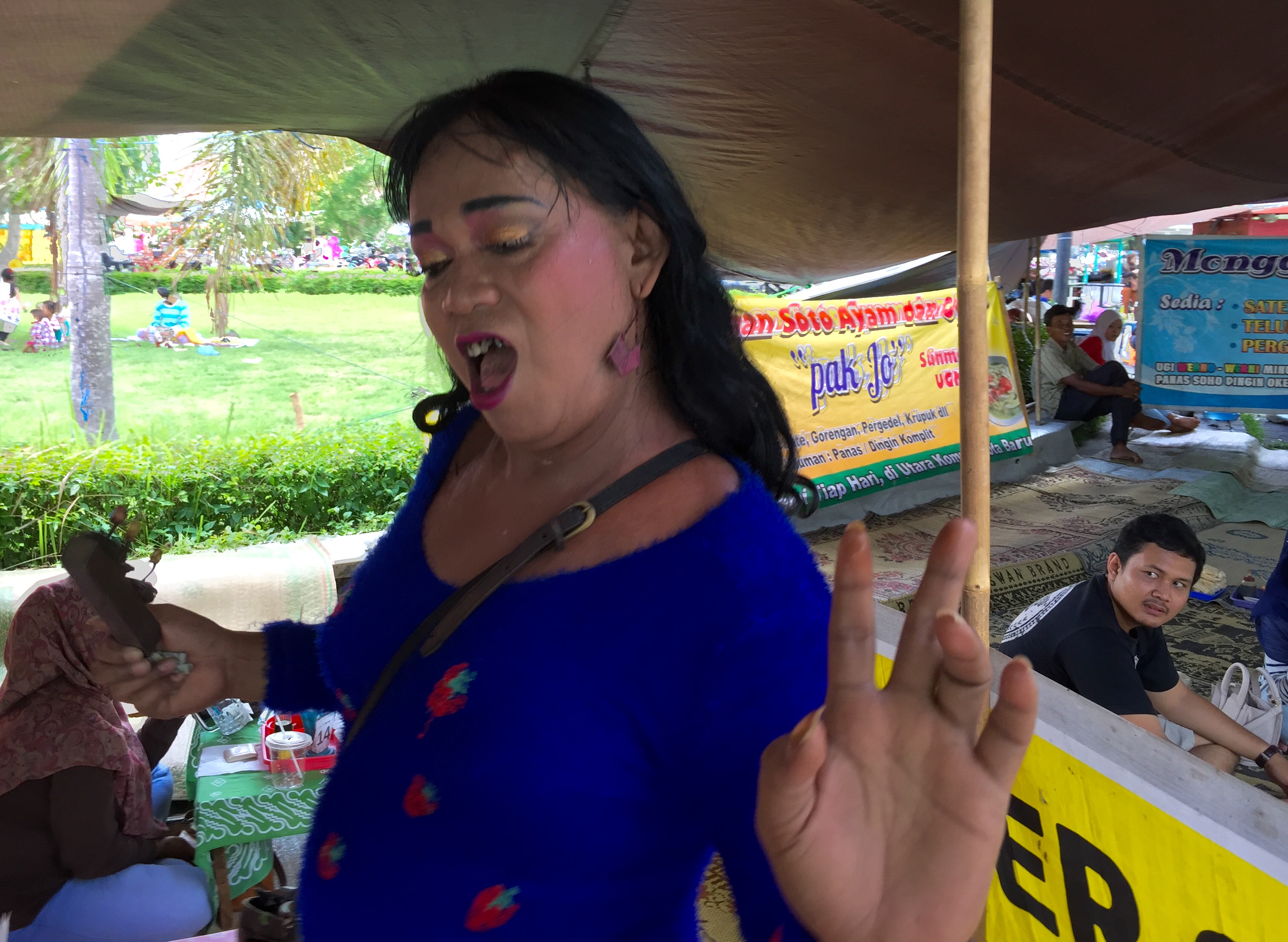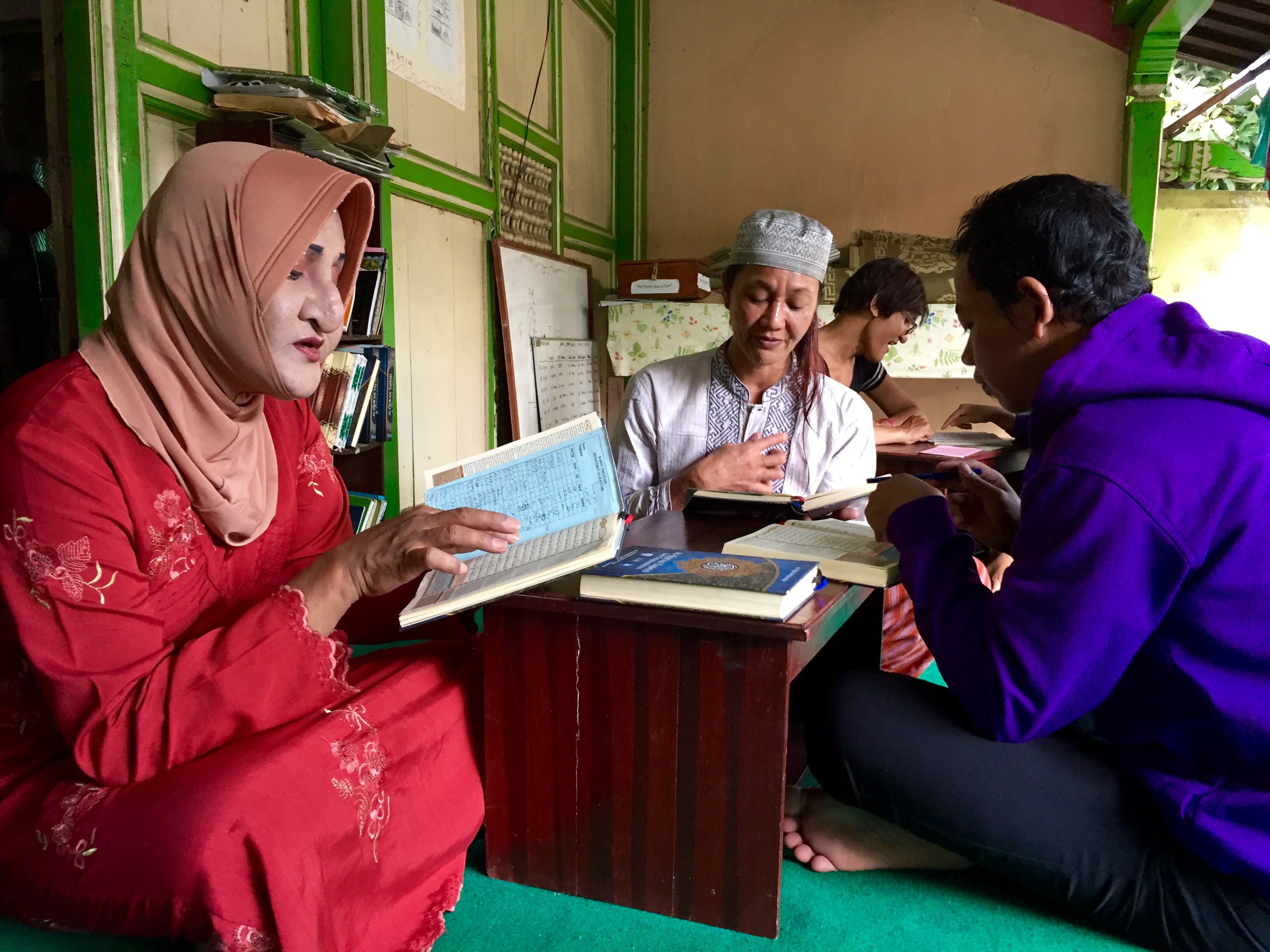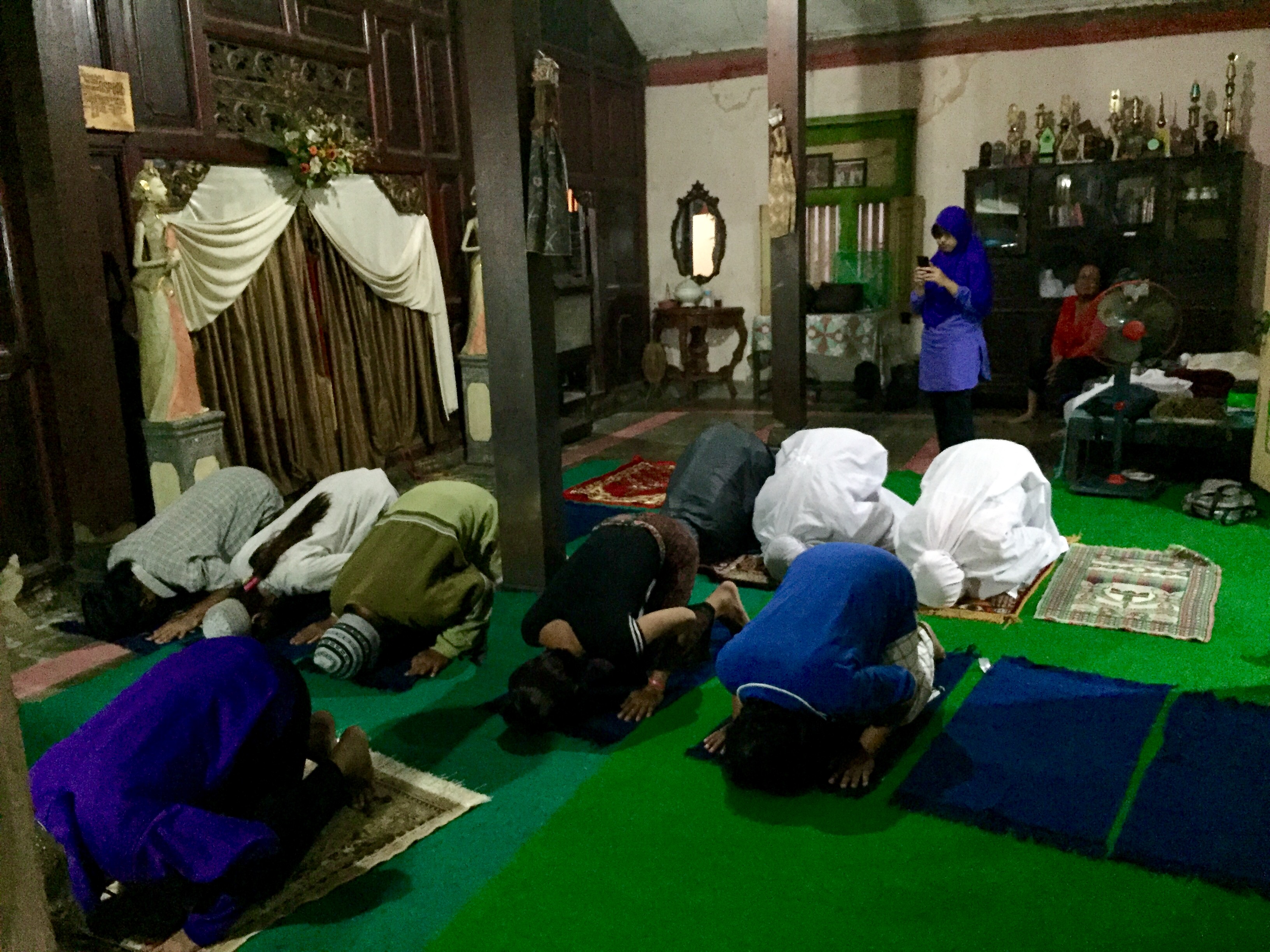Indonesia’s transgender madrasa
It’s 11pm, and in moon-lit back-street Yogyakarta, I’m marching along with Eva and Juli. They’re dressed to the nines, tottering and tripping over the cobbles on their high heels, and they’re definitely strutting. Eva is 52 and Juli, drawing hard on a strong kretek clove cigarette, is 55. They’re off to work.
This central Javanese city is tolerant of its transgender subculture. It’s nothing new. In fact, it goes back centuries, even pre-dating the arrival of Islam. Elsewhere in this country of 210 million Muslims, waria run the gauntlet of Islamist condemnation. Not here.
Transgender women are known as “waria” — the Indonesian term for someone born as a man and living as a woman, and it’s not derogatory. The word is a compound of “wanita” — or woman — and “pria” — or man.
Noor Aya dances to popular dangdut folk music; there were at least six other Waria doing the same thing elsewhere in the market.
In the alley, groups of women passing in the other direction look at Eva and Juli first, then at me. They’re mostly po-faced. If they disapprove, they don’t give it away. Men just smirk at me. God knows what they’re thinking.
God has been the big theme tonight. Eva and Juli have just finished their Koranic studies and prayers in the world’s one and only transgender-madrasa, set up by waria for waria, so they can have somewhere to study and pray. Tolerant though they are, local mosques don’t want them. Yogyakarta’s top imam told me: “In Islam, it’s prohibited.”
Ibu Shinta, founder and director of the world’s one and only transgender madrassa.
Eva and Juli sell themselves cheap as they wiggle and pout in the oncoming headlights for passing truckers and motorbike taxi drivers. Their clients, they tell me, are often married men, with families to go home to.
The waria put a brave face on things; they laugh a lot. But for all the tolerance, there’s still social stigma. In Bahasa Indonesia, there is a slew of derogatory terms for waria; many still regard them as deviants and sinners.
There are 210 million Muslims in Indonesia. Most consider the transgender community as sinners and deviants.
In Yogyakarta, they might not live in fear of physical violence and abuse at the hands of Islamist hardliners, but many have been cast out of the their families, disowned — including Ibu Shinta, the 53-year-old madrassa director.
Spend any time in their company and you pick up hints of skin-deep fragility and low self-esteem. In some cases, their skin itself testifies to self-harm. For those who work the streets, it’s a sordid business; it’s illegal and it’s dangerous, out in the pitch-darkness on a bridge on the outskirts of town. More than 60 waria from Yogyakarta have died from AIDS in just over a decade.
The transgender madrasa, tucked away down an alleyway behind a large mosque, was founded in 2008, after an earthquake in which many waria died. It offers an oasis of hope and dignity and operates koranic instruction in defiance of more conservative imported strands of Islam which have gained prominence in recent years.
The Waria mostly pray in women’s robes. Some though feel more comfortable praying dressed as men. They change back into women’s clothes before hitting the streets.
Now they are carving a niche for themselves and in doing so, have drawn more in, from towns far and wide. For most of the waria, particularly the older ones, being able to make their peace with God, to pray openly in women’s clothes and to learn about their faith in a way they’ve never been able to do before is a liberating experience in itself.
In their heads and their hearts the waria are women — and in their souls, they are Muslims. If Islam could just be more accepting, forgiving, they say, of a lifestyle that wasn’t their choice to begin with, maybe they would not be condemned to this risky, degrading existence.
Follow @millerc4 on Twitter.




